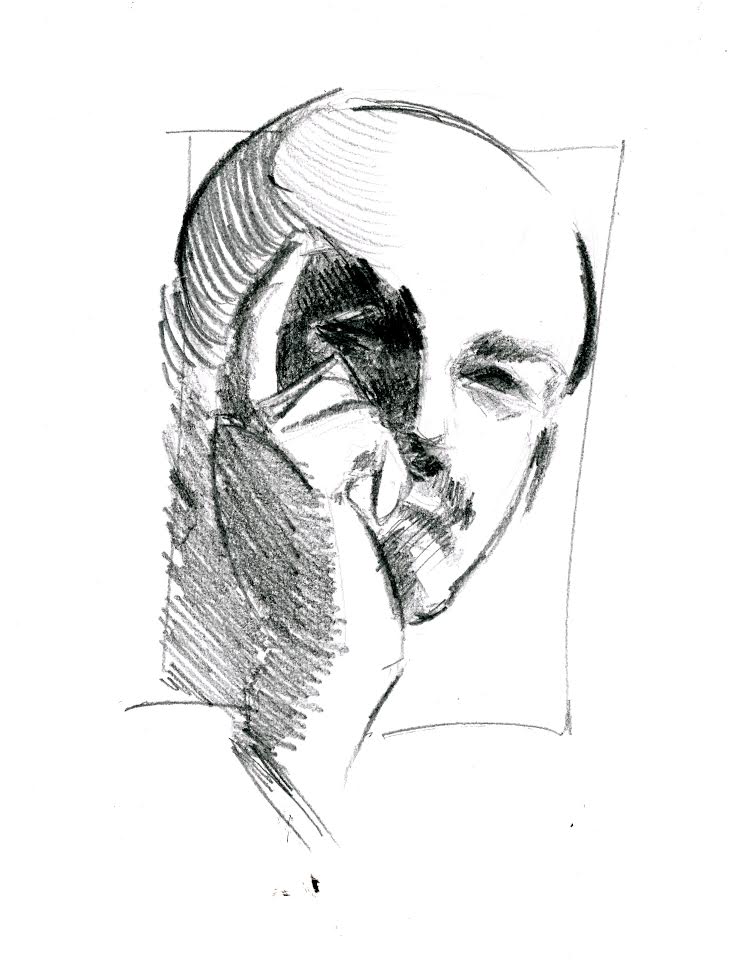
One hundred years ago, an obscure Russian exile living in Switzerland embarked on a train bound for his snowy and tumultuous homeland. Furtively ensconced in a sealed compartment, the professional revolutionary must have contemplated the future with a wry smile. Now was the perfect time for his craft. The liberal world order was collapsing into anarchy and misery. If he had looked outside the window, he would have seen the devastation on the Eastern front: blasted countryside, starving civilians, disheveled or even mutilated soldiers cursing and drudging through muck. Millions had already been slaughtered on the other side of the continent. In these dire times, when scarcity flirted with destruction, revolution was imminent. And so Vladimir Lenin, the man in the train, capitalized (communized?) this moment. In perhaps the single greatest individual contribution to history, Lenin installed the most serious ideological challenge to liberal democracy in the Soviet Union, and the world has felt the consequences ever since.
The centenary of Lenin’s putsch is causing much consternation for its eerie parallels with contemporary dissatisfaction with the liberal order. The threat today is not from a mustachioed communist but rather a toupee-wearing incarnation of an orange. Populists have either risen to power or are gaining majority support across the West. The election of Trump and the triumph of Brexiteers serve as the prime example of liberalism’s unceremonious retreat: Both are victories for isolation and xenophobia, espousing the political and economic rights of native citizens over those of immigrants and foreigners. “If you believe you’re a citizen of the world, you’re a citizen of nowhere,” Theresa May, the British Prime Minister, has proudly proclaimed. Whereas Lenin’s coup against liberalism was one of cosmopolitan solidarity with the working class, the new populism is mere regressive nationalism. Under this system, the free market must serve each country’s citizens first. Never mind that higher tariffs make everyone worse off, by raising prices for consumers and creating inefficiencies in global trade. Poorer countries are disproportionately hurt, because their comparative advantage lies in industries with low labor costs.
The anniversary of Lenin’s revolution is significant not just because we face a threat to the global order, but because it is an invocation to action. This might sound contradictory or morally suspect at first. How can Lenin both be a threat and an inspiration? The crucial task is to focus on the civic motivation which animated Lenin, as opposed to his actual actions. This does not mean we have to be Lenin apologists: He valued human life at naught if it stood in his path to liberating the working class and institutionalized the nightmarishly totalitarian Soviet state.
But Lenin was a man of action who showed what one person may achieve through sheer will and protest. He valued equality above all else and sought the admirable goal of utopia on earth. Human suffering was his Moby Dick: sublimating all personal attachments to the pursuit of a better world, Lenin manically fought to free people from poverty and serfdom.
So let’s transfer these lessons to the present. When government has extinguished the progressive flame, civil society must vigorously rekindle it. We should co-opt the revolutionary spirit in defense of the status quo, not to destroy it. It is a clarion call to the barricades of liberal democracy. To separate ourselves from the violence of Lenin’s revolution, our rallying cry should not be “Who will fight with me on the barricades?” but the tongue-in-cheek question, “Who will split an uber with me to the barricades?”
2017 should be the year of protest. As a professor of mine quipped sardonically after Trump’s election, “It’s a great time to be a leftist.” Too much lies at stake to be docile. At risk is the very idea that all people have inherent dignity and are worthy of respect. Our next president threatens to deport millions of ordinary people, embraces white nationalists and racists in his cabinet and stokes xenophobia. Not to mention the pernicious effects of tax cuts for the wealthy which could entrench inequality for a generation to come. Now is the time to assert our universal humanity, not to retreat into selfish boundaries of nation or race. The fateful train ride of 1917 must transform into the rolling mass action of 2017.
Adam Krok is a sophomore in Saybrook College. His column usually runs on alternate Mondays. Contact him at adam.krok@yale.edu .







